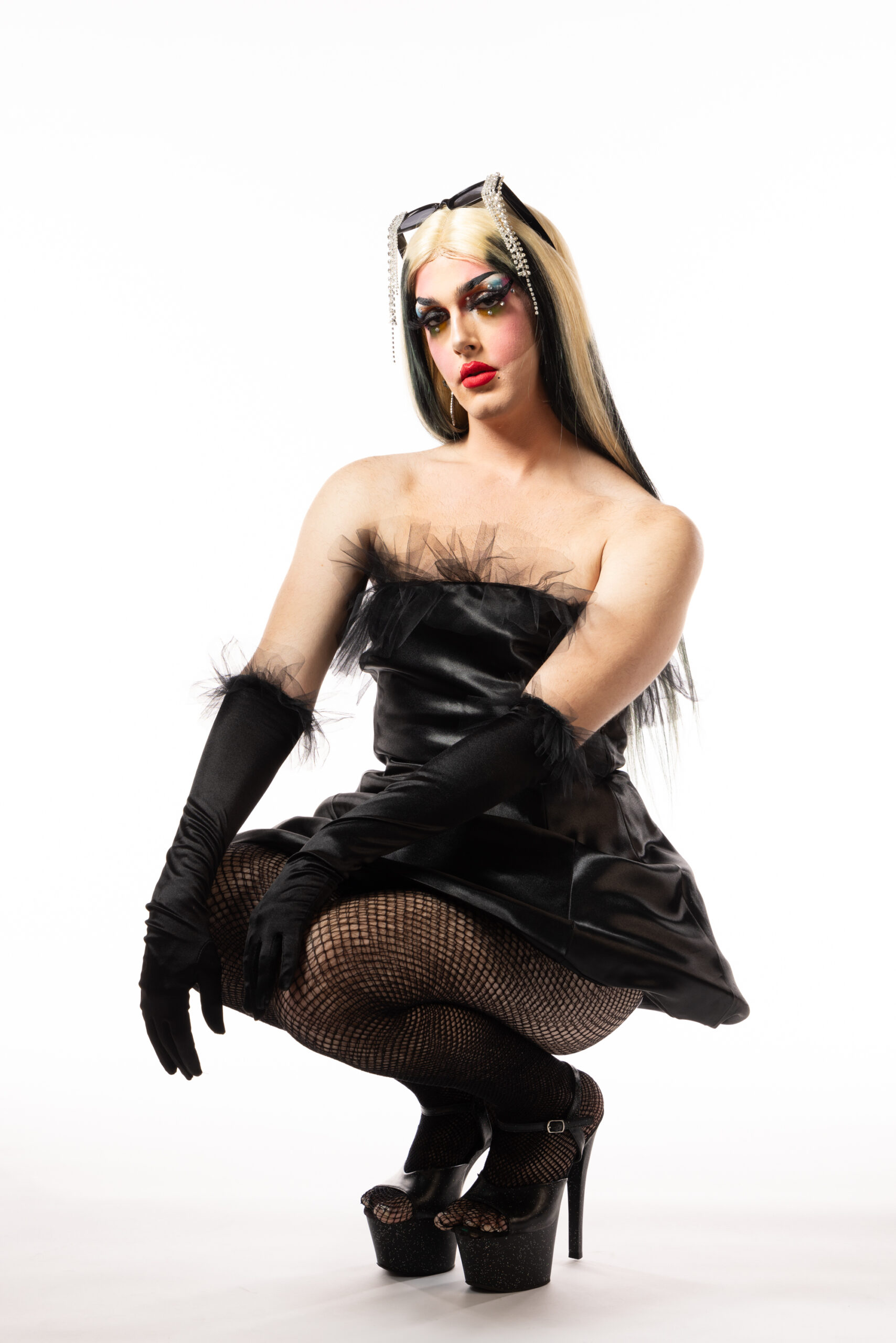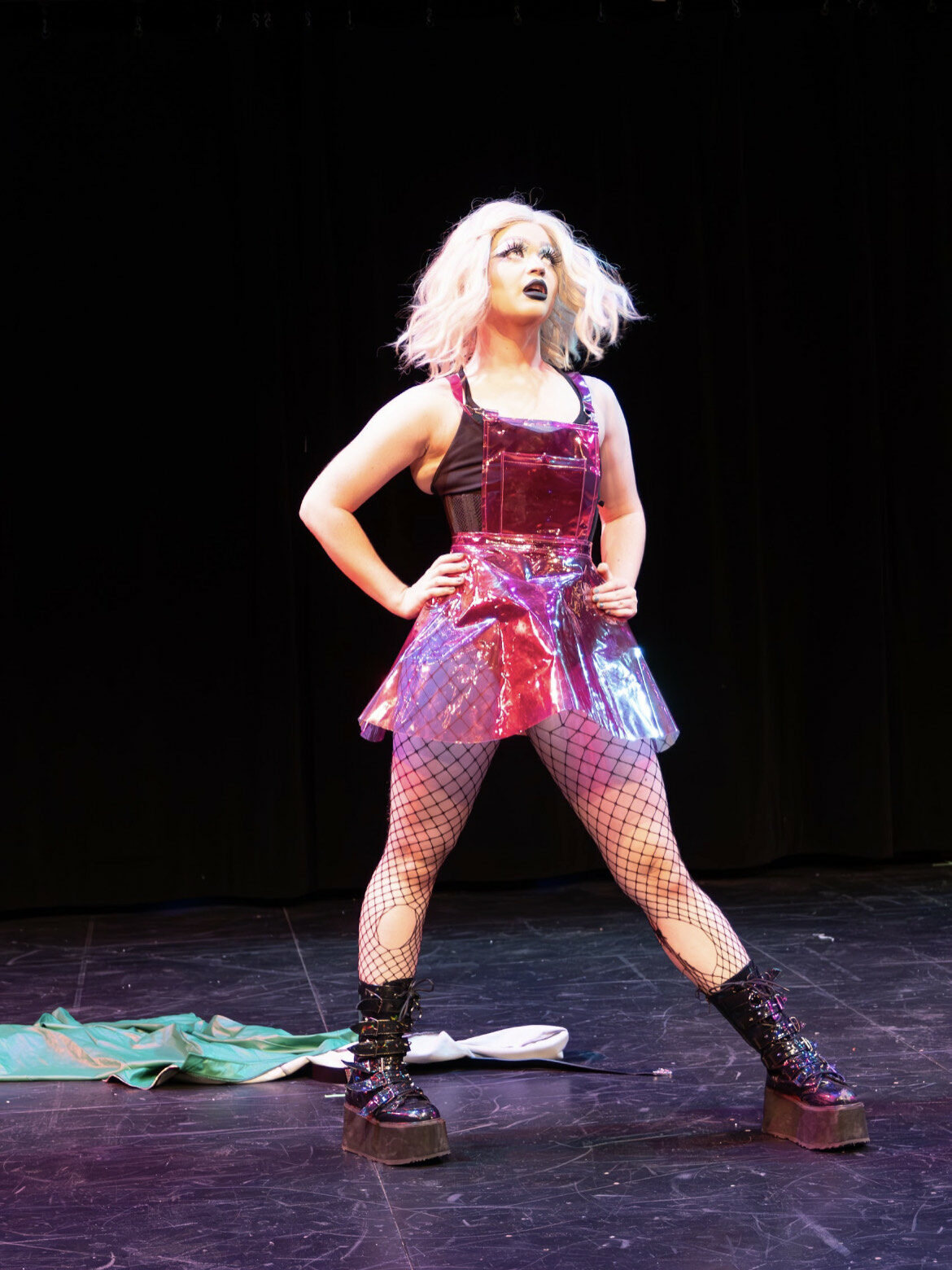
By Talia Makowsky
Do you remember the first time you saw a drag performer? For many of us, a famous competition reality show may be our first exposure to this art form. I know it was the first time I saw the boundaries of gender expression being pushed beyond my own understanding, the first time I saw a community of LGBTQ+ people all together on one show (even if they were competing for money and fame).
Drag has a long history beyond men dressing as women for roles in Shakespeare’s plays. There were drag balls back in the 1860s, and drag queens were often featured in vaudeville performances in the early 1900s. The ballroom scene in New York in the 1970s was a haven for drag artists to show up and show out, and the LGBTQ+ liberation movements that took place in the 60s and 70s were led by drag queens and trans women.
Throughout drag’s history, two things have remained the same: Drag is an essential form of self-expression, and the places that host drag performances are spaces where LGBTQ+ people can feel safe — at least for the length of the next dance number.
Drag is gender performance, an elaborate play on how we express ourselves daily as we choose our clothes, how to wear our hair, whether to wear makeup, how we walk and talk and act around others. All of us are performing gender, whether we’re conscious of it or not, through the way we express ourselves to others. Our personal performances may not involve wigs and sequined dresses, and extreme makeup, but we’re still trying to tell the people around us how we want them to perceive us when we choose this t-shirt or that skirt, this lipstick color or that baseball cap.
In an attempt to gain more power and marginalize LGBTQ+ people further, fear-mongering politicians claim drag harms children. As they try to score political points, as they force their own expectations of and boundaries around gender onto young people in particular, it is their position that is causing harm.
At Keshet, we know how crucial supporting LGBTQ+ youth can be and how much harm is caused by anti-LGBTQ+ legislation and the general absence of support. We aim to celebrate the ways young people explore gender and find ways to be their most authentic selves.
To mark International Drag Day, which takes place July 16, I’m honored to feature some of Keshet’s youth participants who also do drag, to inspire us to protect their self-expression and artistry. They shared how drag has helped them to grow and how it inspires them to make the world a better place:

Ben / Benadryl, 22, North Carolina
“I learned how to give back through Jewish values and practices, and I do drag as an LGBTQIA+ Jew to better my community. Drag uses art and creativity to foster love, acceptance, queer joy, and progress. I aim to create a better tomorrow, and emphasize that drag is not a crime, as I lip sync and host events as a proud LGBTQIA+ Jew.”
Noam / Queen Ultraviolet, 20, Maryland
“I love doing drag as an LGBTQ+ Jew because it allows me to fully experience my identity in a way that can be difficult to express. Finding community in drag performance has been so meaningful and life changing for me, and I’m so grateful to have the opportunity to bring my culture to those communities, as well as bring drag performance into Jewish spaces.”

Photo credit @curly.clix

Ollie / Roxstar, 21, New York
“I love doing drag as a queer Jew because of drag’s history and future in the fight for liberation for all marginalized and oppressed people. Through experimentation with gender expression, performance, and look, drag is used as a tool to fight for legal and social rights, and safety of all.”
I hope that you get to celebrate International Drag Day this year without fear and without discrimination. I encourage you to see a local drag show, attend a local drag story hour, and generously tip the drag performers who push back against hate and are creating spaces where each of us can be fully ourselves.